Biden's legacy in the Middle Eastern Cold War
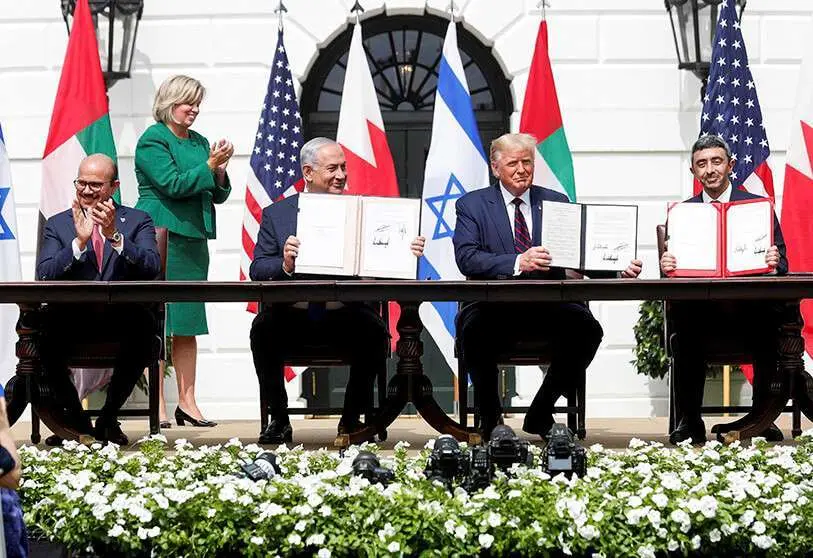
Where will Biden stand in the conflict between Iran and Saudi Arabia?
A big question for Joe Biden's future foreign policy is: will the new US president follow the policy implemented by former president Donald Trump in the subsidiary war between Iran and Saudi Arabia, which many call the Middle East Cold War? The struggle between Iran and Saudi Arabia for dominance in the region has been evident in almost every regional conflict and has polarized all alliances in the Arab world. However, a third actor has taken a decisive role in this war, that of Israel. Saudi Arabia and Israel have gradually drawn closer since the 2015 signing of the nuclear deal with Iran by the European Union and the G5+1-United Kingdom, China, France, United States, Russia and Germany-in order to halt the uranium enrichment race in exchange for progressively lifting the sanctions imposed for this purpose. Both Israel and the Kingdom feel directly threatened by Iran and have joined forces to combat the Persian country's influence in the region.

Therefore, since Trump took over the White House in 2016, Israeli Prime Minister Benjamin Netanyahu has set out to make the creation of an anti-Iranian Israeli-Sunni coalition a reality, in order to dismantle the nuclear agreement with Iran and press the United States to adopt a more belligerent stance with respect to Teheran.
This idea was welcomed by Washington, which has been fighting for decades against the threat of Iranian hegemony in the region and the challenge it poses to US interests. The main pillar of Iran's foreign policy is the "Axis of Resistance", a political alliance led by Iran and made up of both state and non-state actors; for example, Al-Asad's government in Syria, Hezbollah in Lebanon, Hamas in Gaza and the Houthis in Yemen. These actors, although belonging to different religious and ideological groups and with different political objectives, have joined forces to combat US imperialism, Zionism and their allies in the region. The architect and leader of this network of Iranian influence was Qassem Soleimani, the general killed by the United States in a drone attack in Baghdad in January this year. Over time, the general transformed the alliance from an organisation characterised by covert terrorist activity, intelligence sharing, rhetorical support and tacit diplomacy into an organisation with increasingly numerous force deployments, joint military operations, economic assistance and deterrent powers. It is estimated that up to 100 militias are backed by Iran in Afghanistan, Iraq, Lebanon, Pakistan, Syria, Palestine and Yemen (Pollack, 2020). In particular, Iran's growing influence in Syria, Iraq and Yemen is raising crucial questions for the future of US leadership in the Middle East.
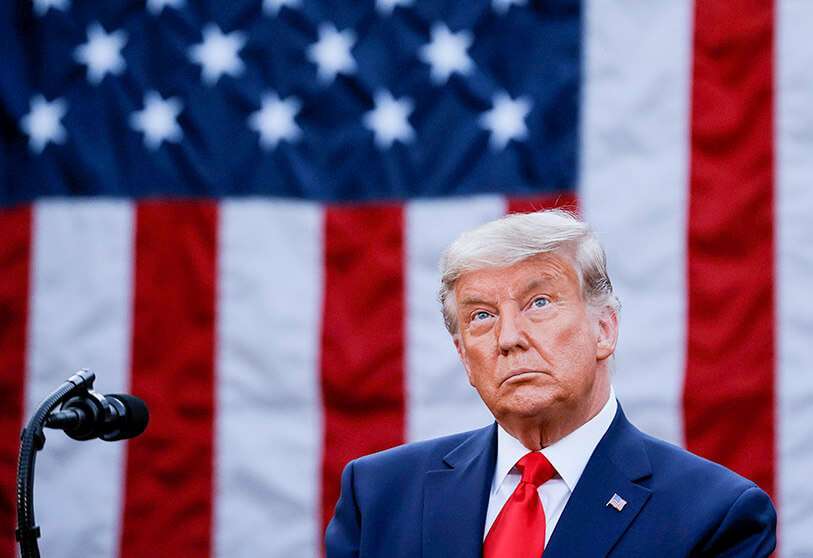
In May 2018, the United States launched a "maximum pressure campaign" to weaken Iran's economy, its financial ties with the outside world and devastate its oil exports. The Trump Administration cited three main objectives for the campaign: 1) to exert pressure that would bring Iran to the negotiating table by force; 2) to encourage a change of regime through internal uprisings; and 3) to decrease its resources in order to weaken Iran's allies and halt its nuclear and ballistic missile programmes (Rouhi, 2020). Furthermore, Iran has been greatly weakened by the various protests that have occurred in the country since 2017, its economic crisis, the COVID-19 crisis, the cyber war it has been waging against Israel throughout this year and the series of explosions that occurred in the country, the origins of which remain a mystery. First reported on 25 June 2020, the locations of the explosions include nuclear enrichment facilities, missile sites, petrochemical centres, power plants and medical clinics.
At the same time, together with Netanyahu, Trump has taken the first steps towards an anti-Iranian alliance in the Middle East through economic cooperation. On September 15, the historic Abraham Accords were signed at the White House under US auspices and mediation. Under these agreements, the United Arab Emirates (UAE) and Bahrain normalised their diplomatic and trade relations with Israel. Donald Trump stated that the aim of these pacts is to achieve peace in the Middle East. Almost a month later another Arab country joined the normalisation process: Sudan.
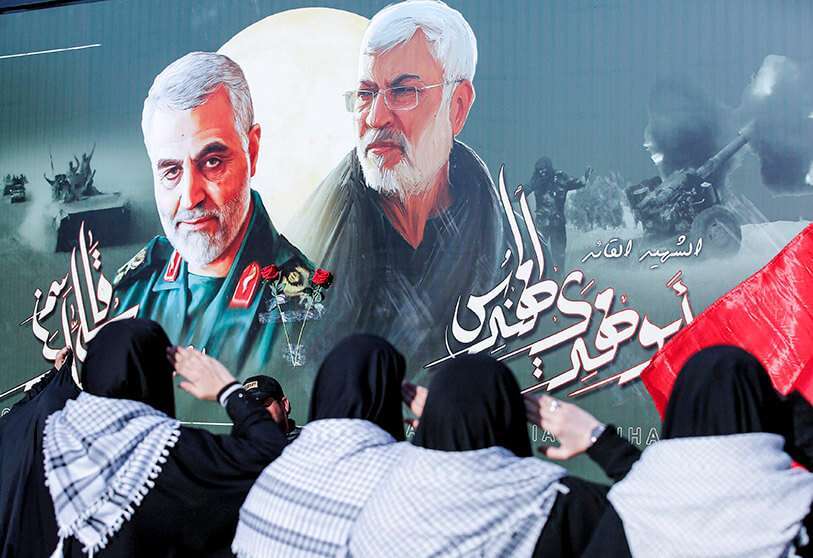
Despite referring to the treaties as the Abraham Accords, in honour of the father of the three great monotheistic religions, appealing to a sense of religious reconciliation, Israel continues to be seen as a country that threatens the rights of Palestinians in Israel, the West Bank and Gaza. Furthermore, the UAE and Bahrain's decision violates the Arab Peace Initiative, launched by Saudi Arabia and approved by the Arab League at the Beirut Summit in 2002, and which has again been approved at the 2007 and 2017 summits. The Initiative states that the 22 Arab states will normalise their relations with Israel only by establishing an independent and sovereign Palestinian state and the total withdrawal of Israel from the occupied territories in the West Bank, Gaza and the Golan Heights. Although the United Arab Emirates has already indicated that it continues to support the position of the establishment of the State of Palestine.
The US president announced that another five or seven Arab countries will sign similar agreements with Israel. One possible clue is the tour undertaken by US Secretary of State Mike Pompeo on November 16 across seven countries, including Israel, UAE, Saudi Arabia and Qatar, with the aim of "promoting peace in the Middle East".
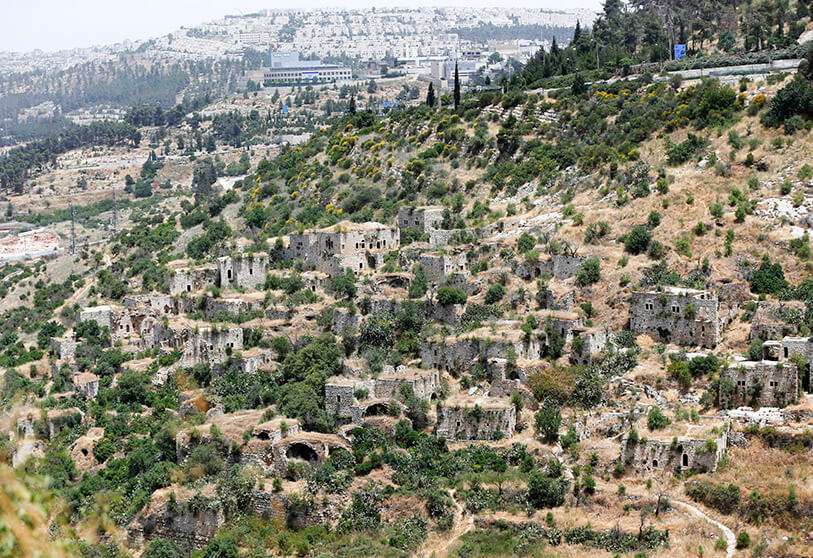
Baldwin's "theory of the domino effect of regionalism" can be used to explain the possible wave of normalisation that could occur in the Arab world. UAE and Bahrain will increase their economic benefits enormously following the agreement, and economic actors in other Gulf and Levant countries will suffer from increased relative costs and possible deviations in trade flows. Consequently, the sectors most affected will put pressure on their governments to establish normalisation with Israel. Adherence to standardisation by at least one other country will further increase the relative costs of many sectors, which are located in third countries, specifically of exporting companies, making the pressure stronger and therefore more likely to join. Furthermore, many Arab governments will not want these countries to become leaders in the region thanks to the combination of the economic power of the two Arab countries and Israeli capabilities in cybernetic, agricultural and health technology. Furthermore, as the United Arab Emirates has already broken the ice and anger has erupted, normalisation and peace with Israel is now a more acceptable option for other countries. Finally, the polarisation of the region is another factor that could push more nations to follow a similar path. Countries enjoying economic and intelligence relations with Israel will probably be the first to follow in the footsteps of Emirates and Bahrain.
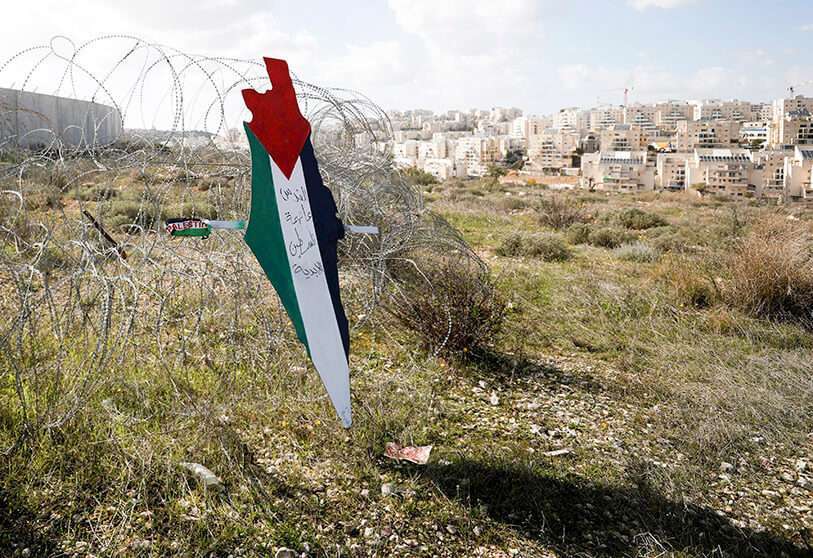
These agreements are possibly the initial phase of the Israeli plan to link Haifa with the Gulf nations, a plan backed by the United States. "Tracks to regional peace" as Katz (Israel's former foreign minister from February 2019 to May 2020) and Netanyahu call it. This is a railway line that would run from Israel to Saudi Arabia and the United Arab Emirates through Jordan, connecting the Mediterranean and the Gulf. It is expected that in the future the track will also connect with Iraq. This economic and trade interconnectivity will attract more countries in the region, bringing them into the US-Israeli-Saudi sphere of influence.
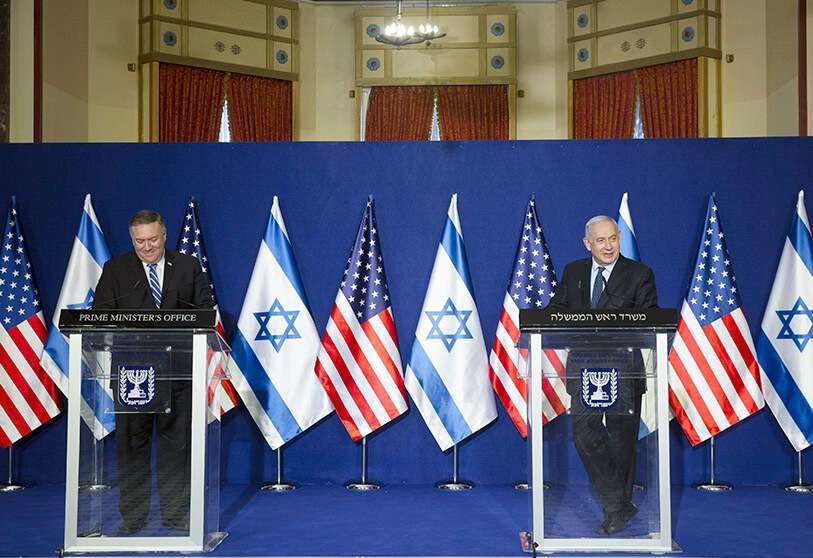
The Abraham Accords declare a "shared commitment to promote stability through diplomatic engagement, greater economic integration and closer security coordination". What does this remind us of? In the context of the Cold War between the United States and Russia, the European Coal and Steel Community was established in 1950 between six neighbouring countries with the aim of putting an end to centuries of enmity and war as well as forming a strong anti-communist alliance through economic cooperation. It was the seed of what we now know as the 27-member European Union. The role played by the United States was very similar to the position assumed by Trump over these four years, a very active player in terms of mediation, design and implementation of objectives, economic support and ideological and security provision. Moreover, as it was the case in Europe with the creation of NATO in 1949, Donald Trump proposed the creation of an Arab NATO in 2018, which was later renamed the Middle East Strategic Alliance (MESA). The first general conference took place in Washington D.C. in November 2019, attended by representatives from Bahrain, Kuwait, Oman, Qatar, Saudi Arabia, UAE, Jordan and the United States. The aim of MESA is economic, energy and security cooperation.
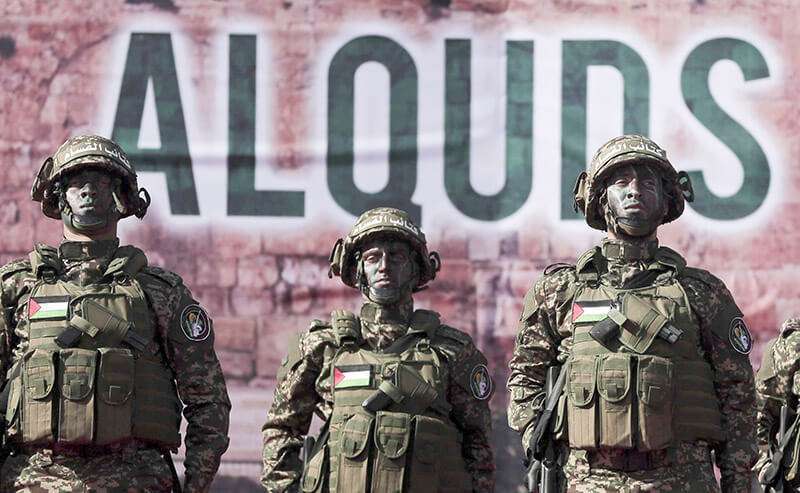
These agreements have two major advantages for Israel: first, they help emphasise the view of Iran as the most pressing danger to the Middle East, diverting public attention from the Palestinian cause. Second, if more countries join in the normalisation, the economic blockade of Israel will be ended after seven decades of isolation, and the economic ties of cooperation and trade between the countries will be difficult to break in the future, allowing Israel to continue annexing parts of Palestine and threatening Palestinian rights.
Finally, the possibility of a new popular uprising in Palestine, a third intifada, should not be ruled out; the response of the Gulf countries would be an important turning point for the region, which could recover the rhetoric of solidarity with Palestine or openly position on the Israeli side.
1. Pollack, K. (2020) “The Evolution Of The Revolution: The Changing Nature Of Iran’s Axis Of Resistance”, American Enterprise Institute , p.1-17. Available at: https://www.jstor.org/stable/resrep24614?seq=1#metadata_info_tab_contents
2. Rouhi, M. (2020) “Iran and America: the perverse consequences of maximum pressure”, The Survival Editors’ Blog, 10 March [online]. Available at: https://www.iiss.org/blogs/survival-blog/2020/03/iran-united-states-maximum-pressure
3. Galili, L. (2019) “Gulf-Israel ties: A new Middle East or a distraction from domestic chaos?”, Middle East Eye, 11 December [online]. Available at: https://www.middleeasteye.net/news/israel-gulf-ties-katz-transportation-peace-nuclear-iron-dome
1. https://www.wto.org/english/res_e/publications_e/wtr11_forum_e/wtr11_11jan11_e.pdf
2. https://www.bloomberg.com/news/articles/2020-08-01/uae-starts-operation-of-arab-world-s-first-nuclear-power-reactor
3. https://www.bloomberg.com/news/articles/2020-08-18/israeli-peace-deal-coaxes-emirati-investors-out-of-the-shadows
4. https://www.bloomberg.com/news/articles/2020-08-19/why-uae-struck-a-deal-with-israel-and-why-it-matters-quicktake
5. https://www.newyorker.com/magazine/2018/06/18/donald-trumps-new-world-order
6. https://www.newyorker.com/magazine/2018/04/09/a-saudi-princes-quest-to-remake-the-middle-east
7. https://www.newyorker.com/news/our-columnists/israel-peace-deal-united-arab-emirates-transforms-the-middle-east#intcid=_the-new-yorker-bottom-recirc_53e0410c-a9c7-4169-b8eb-058df4a461fd_similar2-3








